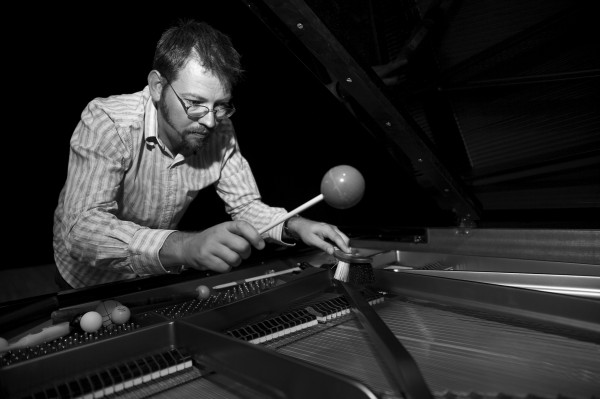British pianist Philip Thomas speaks about his exploration of Canadian experimental music.
As I’ve recently come to know the music of a number of Canadian composers I’ve felt strongly that there are similar areas of exploration between their music and that of many of the composers with whom I feel an affinity in the UK. In particular the influence of the American experimentalists John Cage, Morton Feldman and Christian Wolff (as well as others such as Alvin Lucier and James Tenney) is keenly felt in their music but is more a point of aesthetic connection than a concerted effort to develop an ‘experimental’ movement.
What unites all the composers here is a rejection of traditional dramatic narratives. Instead there is a focus upon the immediacy of the moment and the ‘now-ness’ of the musical material. In the pieces featured in the Canada Connections programme however, there is a difference between the two nations – the British composers work their material through process, albeit large-scale processes which may or may not be immediately perceptible in the detail. The Canadians, however, adopt a looser approach to the material, allowing it to unravel, stop and start, meander. This makes for quite a radical contrast, and throws into question previous assumptions and ideas about musical form. With all the composers included in this programme there is an element of curiosity – how does this music function? How does it hold together? And how do we perceive music through time?
– Philip Thomas, 2012
attend the Canada Connections concert, Saturday, April 20, 2013